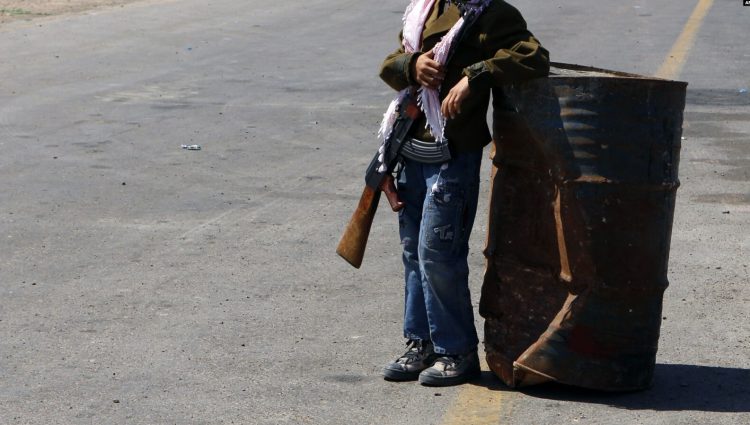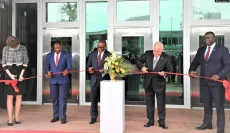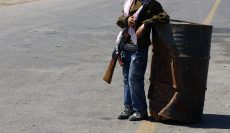The accounts are consistent with those of witnesses who escaped from a group training base, locally known as al-shaabab on Siri-1, and who described to VOA the existence of “many child soldiers” kidnapped to swell the ranks of the insurgents.
“There (in the field where he was) the majority are young people and children, men aged 40 do not exist there, there are almost seven in number, those aged 40 to 50, besides, they are ‘kids’ (children),” he told VOA a witness to the refugee abuses in Macomia.
In its report, HRW writes that the armed group kidnapped hundreds of boys, some as young as 12, trained them at bases in Cabo Delgado and forced them to fight alongside adults.
The document, which cites a former child soldier and two witnesses to the abuses, states that in Palma, parents said they saw their children carrying weapons when they returned with other fighters to invade their village.
Report is late, says investigator
Two other women said al-Shabaab kidnapped their children during an attack on Mocimboa da Praia in August 2020, writes the HRW report.
“Using children in combat is cruel, illegal and should never happen,” said Mausi Segun, director of HRW Africa.
“Al-Shabaab of Mozambique must stop recruiting children and release all the children in its ranks,” he added.
Three women who escaped from an al-Shabaab base in Mbau said there are “hundreds of boys” in the group’s ranks. “They behave like grown men, even choosing ‘wives’ from the kidnapped girls,” said one woman, quoted in the report.
“Al-Shabaab’s growing use of children as fighters is the most terrifying chapter in Cabo Delgado’s violence. The Mozambican authorities must take measures to protect the children, so that they remain with their families and in school and are not exploited as weapons of war”, says Mausi Segun.
The Rural Environment Observatory (OMR), which has been following the conflict in Cabo Delgado, has reported on previous occasions that kidnapped boys were expanding the ranks of armed groups in the area.
Speaking to VOA, João Feijó, researcher and technical coordinator of the OMR, affirms that the report is late, but raises the voices of those who defend a social intervention in Cabo Delgado to withdraw adhesion in the ranks of the insurgents, through peaceful and or violent.
“The involvement in the ranks of these groups took place in several ways, either through voluntary membership, which happened at a given time that this group had a great deal of control over the population and a capacity for recruitment, and it happened through enticement, through values monetary and false promises, or forced (kidnapping)”, concludes João Feijó.
However, he observes that the efforts and measures used by government forces to avoid the accession process “seems that it has been much more around appeals and warnings to surveillance”, rather than a social intervention with survival alternatives for young people.

 Português
Português



